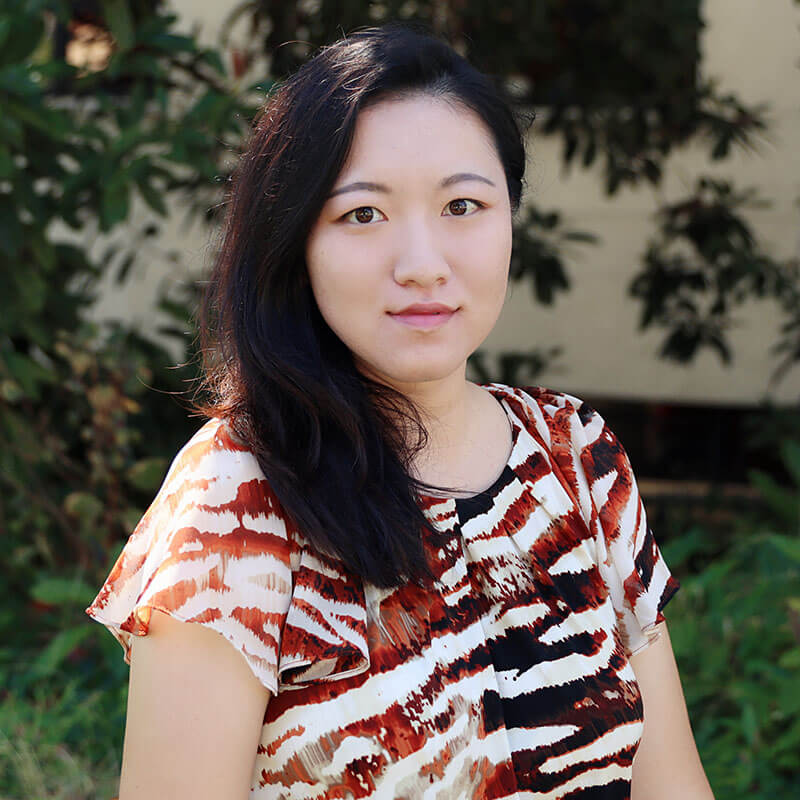Dr. Hanyang Li

Pronouns: She/Hers/Her
Assistant Professor
Academic Affairs
College of Engineering
Civil, Construction, and Environmental Engineering
SDSU
Primary Email: [email protected]
Phone/Fax
Primary Phone: 619-594-3802
Building/Location
Engineering - 403K
5500 Campanile Drive
San Diego,
California
92182
Website Links
Bio
Dr. Hanyang Li joined the Department of Civil, Construction, and Environmental Engineering at San Diego State University as an assistant professor in August 2022. Dr. Li’s research group combines engineering techniques and data mining approaches to better understand air pollution sources, emissions, and impacts. Prior to joining SDSU, Dr. Li worked as a postdoctoral research associate at the University of California-Davis Air Quality Research Center. She received her Ph.D. degree in Civil Engineering from the Ohio State University and her M.S. degree in Mechanical Engineering from the University of Colorado Boulder.
Education
2014 - B.S. Civil Engineering, Northeast Forestry University, China
2016 - M.S. Mechanical Engineering, University of Colorado Boulder, CO
2020 - Ph.D. Civil Engineering, The Ohio State University
Areas of Specialization
1. Instrument development. A primary focus of Dr. Li's research is developing a spark-induced breakdown spectroscopy instrument for the real-time analysis of toxic metals in ambient particulate matter. This low-cost instrument is suitable for community monitoring studies, occupational exposure assessment, and continuous emission monitoring of hazardous air pollutants at the point of emissions.
2. Laboratory and field studies of atmospheric aerosols. Using low-cost sensors and state-of-the-art instruments, Dr. Li’s group has designed and led laboratory and field experiments to characterize air contaminants from different pollution sources in California, especially in underrepresented communities.
3. Aerosol analysis using data mining tools. Dr. Li's research also leverages data mining tools to address analytical challenges in aerosol studies, including the development of machine learning models to improve the representation of black carbon in climate change models and the application of advanced data analytics techniques to improve the quantification of elemental concentration in spectroscopic analysis.
Awards & Honors
2021 - Excellence in Environmental Health Sciences Poster Competition, EHSC Annual Retreat
2019 - Travel award, American Association for Aerosol Research
2018 - Travel award, International Aerosol Conference
2014 - Outstanding Undergraduate Thesis (Northeast Forestry University, China)
Courses
ENV E 320 Designing Solutions for Environmental Problems
Directed Student Research
Cecilio Cazares, undergraduate student, San Diego State University ─ TARTA vs XACT comparison at the ASCENT site in Pico Rivera
Grants
“TARTA vs XACT comparison at the ASCENT site in Pico Rivera.” California Air Resource Board, 2022–2023.
“Sacramento Environmental Justice Community Air Monitoring” Breathe California, October 2022 – December 2022.
Publications
† Li, H., and May, A. A. (2022), Estimating absorption cross-section of ambient black carbon aerosols: theoretical, empirical, and machine learning models. Aerosol Science & Technology. https://doi.org/10.1080/02786826.2022.2114311
† Selected as a Research Infographic of Aerosol Science and Technology
May, A. A., and Li, H. (2022), Application of machine learning approaches in the analysis of mass absorption cross-section of black carbon aerosols: sensitivity analyses and wavelength dependencies. Aerosol Science & Technology. https://doi.org/10.1080/02786826.2022.2114312
Li, H.*, Mazzei, L., Wallis, C., & Wexler, A. S. (2022), Improving quantitative analysis of spark-induced breakdown spectroscopy: multivariate calibration of metal particles using machine learning. Journal of Aerosol Science, 159. https://doi.org/10.1016/j.jaerosci.2021.105874
Li, H.*, Mazzei, L., Wallis, C., Davari, S. A., & Wexler, A. S. (2021), The performance of an inexpensive spark-induced breakdown spectroscopy instrument for near real-time analysis of heavy metal particles. Atmospheric Environment, 264. https://doi.org/10.1016/j.atmosenv.2021.118666
† Li, H., and May, A. A. (2020), An exploratory approach using regression and machine learning in the analysis of mass absorption cross section of black carbon aerosols: model development and evaluation. Atmosphere. 11(11), 1185. https://doi.org/10.3390/atmos11111185
† Selected as the Editor's Choice Paper of Atmosphere
Li, H., McMeeking, G. R., & May, A. A. (2020), Development of a new correction algorithm applicable to any filter-based absorption photometer. Atmospheric Measurement Techniques, 13(5), 2865-2886. https://doi.org/10.5194/amt-13-2865-2020
Li, H., Lamb, K. D., Schwarz, J. P., Selimovic, V., Yokelson, R. J., McMeeking, G. R., & May, A. A. (2019), Inter-comparison of black carbon measurement methods for simulated open biomass burning emissions. Atmospheric Environment, 206, 156-169. https://doi.org/10.1016/j.atmosenv.2019.03.010
Service
International Border Community Steering Committee (2022-present)
